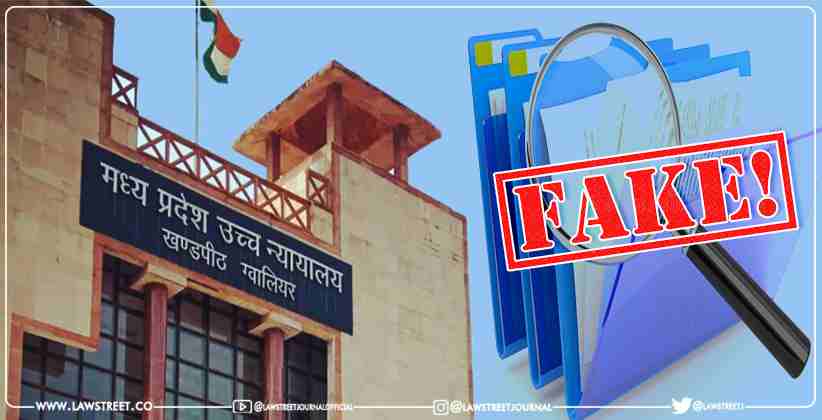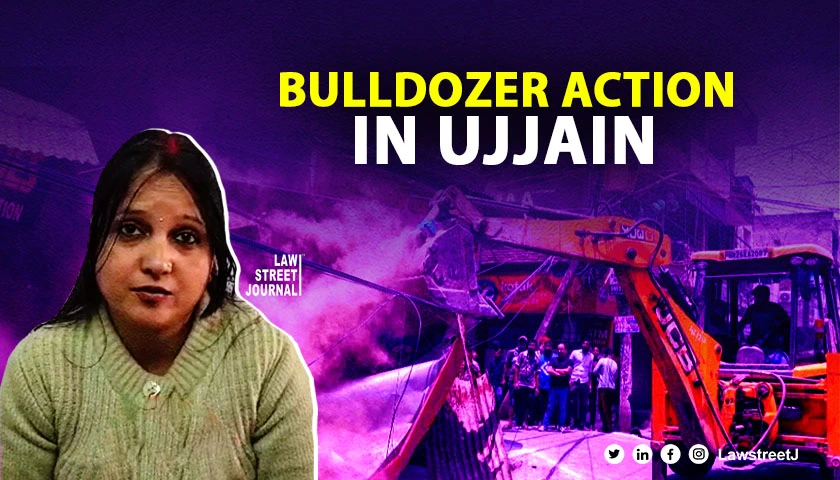Madhya Pradesh: The Madhya Pradesh High Court has dissolved a marriage after finding that unfounded allegations of alcohol addiction made by the wife against her husband constituted mental cruelty, reversing the Family Court’s decision that had dismissed the divorce petition.
A Division Bench comprising Justice Vishal Dhagat and Justice Anuradha Shukla analyzed whether unsubstantiated allegations impacting a spouse’s social standing amount to cruelty justifying dissolution of marriage.
The Bench heard First Appeal No. 334 of 2021 filed by the husband challenging the Family Court, Mandla’s judgment dated 24.02.2021, which had rejected his divorce petition based on desertion and cruelty. The couple married on 23.06.2004 and had two children together.
Both parties worked as public servants, with the husband serving as a Class IV employee while the wife held an officer-level position. The couple had been living separately since June 2017, and the wife had previously filed a case under the Protection of Women from Domestic Violence Act, 2005, which was resolved through compromise.
The husband’s divorce petition claimed their relationship deteriorated from 2015 onwards, with no matrimonial relationship thereafter. He alleged his wife behaved cruelly and made baseless accusations against him, eventually moving to a separate residence on 05.06.2017.
The wife countered that she faced physical and mental cruelty, necessitating the domestic violence case where the husband apologized and a settlement was reached. She characterized him as suspicious, frequently questioning her character. She maintained she never wanted divorce while suggesting he sought it to remarry and avoid responsibilities toward their children.
The Family Court had ruled in the wife’s favor, finding the husband habitually consumed liquor and harassed his wife. The husband challenged this, arguing the judgment misinterpreted facts and misapplied the law, claiming the wife’s allegations were false and her refusal to either reconcile or seek divorce herself constituted cruelty.
The High Court first examined the desertion claim. The Bench noted that while the husband claimed marital relations ended when his wife transferred to another location in 2013, his cross-examination revealed the matrimonial relationship actually ended on 05.06.2017. Since the divorce petition was filed on 10.07.2018, the mandatory two-year period of desertion had not elapsed, making desertion grounds unavailable.
Turning to cruelty allegations, the Bench scrutinized the evidence. The wife claimed the husband’s intoxication addiction and cruel behavior forced her to file the domestic violence case. The Family Court relied heavily on documents marked Ex. D/1 to D/4.
Ex. D/1 was a joint application to the Lok Adalat requesting settlement through compromise. Ex. D/2 contained the compromise terms where the husband admitted physically assaulting his wife over trivial matters and neglecting obligations toward his wife and children. He assured he would care for his family, and both decided to live together again. This compromise was signed on 19.11.2011, and no further proceedings followed against the husband. Ex. D/3 was the Lok Adalat order based on this compromise.
The Bench observed: “In none of these documents, it is mentioned that the appellant-husband had any habit of taking liquor.”
Ex. D/4 was a complaint filed at Police Paramarash Kendra on 24.02.2015 by the wife, but police took no follow-up action. The Bench found: “Thus, whatever wicked deeds were confessed by the appellant-husband in the year 2011, under Ex. D/2, had evidently no recurring episodes in subsequent years of his marital life.”
The Court noted the husband rebutted alcoholism allegations in his sworn statement, concluding: “Thus, documents D/1 to D/4 do not have any evidentiary value to support the allegation of addiction of the appellant-husband to liquor.”
The Bench criticized the Family Court for relying on testimony from the wife’s brother regarding an incident at a reception ceremony supposedly reflecting alcoholism habits: “No pleadings are available in the written reply of the respondent-wife regarding this incident. Thus, we may say that, against the propositions of civil law, the trial court was admitting and placing reliance on evidence, which was definitely beyond the scope of pleadings.”
The Court therefore concluded: “From this discussion, it is established that the allegations of taking liquor made against the appellant-husband were not duly proved by the respondent-wife and the trial court committed error in holding that the appellant-husband was given to alcoholism.”
The Bench then examined whether the wife committed cruelty toward the husband. Acknowledging that mental cruelty is not static and new instances may emerge depending on human behavior, the Court focused on the wife’s persistent allegations.
The Bench stated: “We have no hesitation in observing that normal bickering and quarrels between the parties, happening in their day-to-day life, cannot be taken as a matter of grave concern, but a persistent resolved attitude of the respondent-wife to see that her husband is ridiculed and humiliated in his social circle as an alcoholic is definitely a serious affair.”
The Court referenced Supreme Court precedents. In Samar Ghosh v. Jaya Ghosh, AIR 2007 SC 3148, unjustified behavior by one spouse affecting the physical or mental health of the other was considered serious mental cruelty. In Chanderkala Trivedi (Smt.) v. Dr. S.P. Trivedi, (1993) 4 SCC 232, the apex court found that serious allegations made by one party against another made continuing the marriage impossible.
The Bench also cited V. Bhagat v. D. Bhagat (Smt.), (1994) 1 SCC 337, where the Court held that a wife’s desire to live with her husband despite making various allegations against him was merely a resolution to make his life more miserable, constituting cruelty.
Applying these principles, the Bench held: “In the case on hand, the wife, in order to avoid marital obligations, has made unfounded allegation of habit of intoxication against the appellant-husband and has thus exposed him to social shame and contempt by compromising his social position as a public servant.”
The Court found: “Her act of baseless accusation definitely has a decisive impact on the future relationship of the parties, and in this state of facts, the dismissal of the divorce petition was not legitimate or warranted.”
The Bench allowed the appeal on two grounds: cruelty through false alcoholism allegations and contesting the divorce petition despite being resolute about not resuming cohabitation.
The Court set aside the Family Court’s judgment and decree, declaring: “The marriage solemnized between the parties on 23.06.2004 is declared to be dissolved from the date of this judgment.”
Advocate Pradeep Kumar Naveria represented the appellant-husband, while Advocate Jagadish Prasad Kanojia appeared for the respondent-wife.
Case Title: Manoj Kumar v. Smt. Mamta Arsiya




.jpeg)

![Supporting defamatory WhatsApp posts doesn’t constitute involvement in offence of defamation: MP HC [Read Order]](/secure/uploads/2024/09/lj_6675_WhatsApp_Image_2024-09-16_at_12.24.54_PM.webp)




